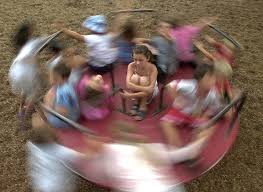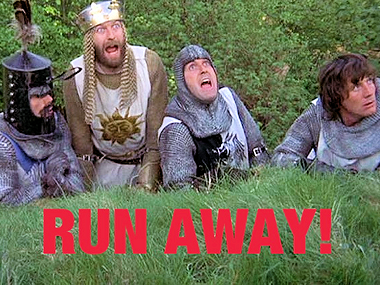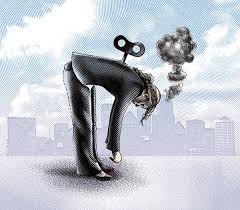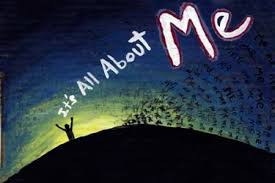
“Some of us are fated to live in a box from which there is only temporary release. We of the damned-up spirits, of the thwarted feelings, of the blocked hearts, and the pent-up thoughts, we who long to blast out, flood forth in a torrent of rage or joy or even madness, but there is nowhere for us to go, nowhere in the world because no one will have us as we are. (Siri Hustvedt, The Summer Without Men)”
Grief is unpredictable.
Only now, have I started to experience the feeling of utter emptiness one moment, anger at being abandoned by my best friend who was my rock, and crucially, the desire to be with him and Elaine. The latter is what has landed me back in hospital. I was released too soon according to the Consultant, hence for a week now I have been back. When I found out by chance at Elaine’s memorial in Glasgow Cathedral, that I had been excluded from Donald’s funeral, that is when is started.

What I needed was rest, quiet, and feeling that I was safe. These basics that I might have considered the fundamentals of “care” were conspicuous by their absence. I was initially in a mixed ward dominated by two characters who were self-confessed drug dealers. At least one of whom I know is fit for discharge but awaiting housing. They were constantly abusive, sexist, ageist, disablist, and racist. They were anti-white, anti-Asian and particularly abusive to African staff and patients.
A friend of mine who was on the ward I happened to have known for at least 10 years from elsewhere. She is a beautiful, intelligent African woman. She was harassed by the two ward-based gangsters for “sitting at the WHITE table”. They were from the Caribbean so had a loathing of Africans,. We had a charming older Asian gentleman on the ward who was always turned out in his suit and tie. They took his walking stick from him and started pretending to be bent over, old men. It was heart breaking to watch, and it happened right in front of staff at reception. They did nothing. Selective Blindness Disorder would be my diagnosis.
The bellowing was absolutely constant. They would play abusive rap music at top volume during meal times when we had not choice other than to be together.

How does one manage extreme loss and associated depression in such a background? I was terrified. At least, as an informal patient, I could go out. It was coming back that was the problem. I had such a panic attack on the bus on the way back I thought I was having a heart attack and so did the other passengers.
These two were particularly fond of invading the space of female patients. I found myself having to describe my uterine bleed in front of an audience of these men.
Meds were done over a counter in a queue. These two would stand listening over my shoulder so they know all about my health issues. They diagnosed me themselves as being a “fat, ugly, white pig”. I am very self conscious about the now visible enormous fibroid. I hate my appearance anyway and so they managed of course to go straight for my Achilles heel.
Vital signs including weight were also taken in a public space in the reception area with the results shouted from one member of staff to another who would write them down. I refused to go through this public spectacle, and was met with a sigh and extreme reluctance.

Likewise my request to have my daily bag search to be done in private was met with resistance even after the CEO had intervened and my consultant assured me I could have privacy. The “system” was that I was expected to have my bag searched on arrival back on the ward by offloading, say, things from home such as underwear & the range of pads I need for uterine bleed on the reception counter. This would have been highly entertaining for the ward Underworld. I asked for it to be carried out in in private. Again this request was met with extreme unwillingness on.
My rape trauma is uppermost in my mind right now due to all the gynae treatment I am having. During those consultations, I can freeze and be completely unable to move. I try to move my arm but it won’t obey. Being barged into and otherwise physically invaded by large men was beyond intolerable. I was drowning in grief and the ward atmosphere weighed me down even further.

Staff reactions varied. They would tell them to stop which was about as effective as a cholcolate kettle. One, a Ghanaian to whom they referred as a “monkey” would explode in anger. That gave this pair the extra impetus for the whole thing to escalate further. I was waiting for physical violence to break out ALL the time.

My excellent consultant and others came up with a plan. The two would be separated as they got worse when they were together. They would be moved to different wards although this was passing the problem on as there only mixed wards in the hospital. Another group of women would be equally traumatised. During my trip home I felt for once safe coming back. However, the first thing I saw was the two of them up to their usual hate speech. They had NOT been moved and were not going to be. This I found out was without the knowledge of the Consultant. I was moved to another ward and…found there was no room in the Women’s Area which had been a refuge in the previous ward. Now I had no refuge at all. I was also right outside the nurses’ station meaning I had shouting, loud laughter, patient details being relayed into my room meaning confidentiality is non-existent. I need peace and quiet, not the cacophony of patients and staff all shouting at once.
I could not believe I had been moved for my own safety to an even less safe ward in which there was no safe haven. Out of the frying pan into the fire comes to mind. That first night there, I sat on the floor and cried my eyes out I couldn’t even Tweet other than pictures to try to get over how I felt.

Luckily, the men on the ward have been lovely. I had dinner with three of them last night and we had such an interesting conversation. This would NEVER have happened on the other ward. I am aware that anything could change in these environments on the head of a pin.
This is NOT the problem of one Trust. It is system-wide. Lack of staffing means people are already stretched to the limit so spending their whole time trying to manage anti social behaviour and deal with the effects of the abuse on patients and other staff, has created a pressure-cooker atmosphere. Some deal with this by becoming completely shut off and merely go through the motions via endless “checks”. There are NOT checks as to whether we are feeling alright or might need support, they are simply to record our presence on the ward. They are a useful means for staff to avoid actually having to feel anything.
I read this excellent blog https://grumblingappendix.wordpress.com/2014/01/21/ticks-all-the-boxes-the-rise-and-rise-of-defensive-nursing/ from which I now quote.
One of these less palatable consequences is extension of risk aversion out of the realm of physical risks and into the realm of communication. Where nurses’ mindset is conditioned by the prioritising of risk minimisation, fear of upsetting someone by ‘saying the wrong thing’ becomes entirely justifiable. From there, it’s a short step to ducking out of meaningful communication altogether, and taking refuge in ‘this important paperwork I’ve got to get through’. An even bigger problem is that all the box-ticking and form-filling potentially reduces the nurse’s subconscious conceptualisation of the patient to nothing more than an atomised collection of checklists and discourages nurses from original thinking.
The checks done by rote with little or no humanity can have dreadful consequences on patient dignity. A ward friend has given me permission to write about what happened to her last week. She had come out of the shower and was heading across the room naked to pick up towels and she found she was being observed through the window on the door by a male member of staff clipboard in hand doing his “checks”. Dignity is way down the list when it comes to the priority of ticking boxes.
The CQC states this about right to patient dignity:
“People have a right to feel and be safe while accessing treatment in mental health wards. As the quality regulator, our priority is to ensure that people using healthcare services are kept safe and that their privacy and dignity are maintained. This means ensuring that patients are protected from sexual safety incidents, and supporting patients who may behave inappropriately.
They have clearly failed in bringing these fine words into reality
I propose:
-
That more training is carried out in de-escalation techniques.
-
That wards are adequately staffed by qualified permanent staff rather than seemingly random Bank Staff
-
That a specific focus be made in existing Trauma-informed training on the potential impact on women who have experienced sexual abuse from being on mixed wards. This training should be patient-led.
-
That it is acknowledged that having female-only areas is far from sufficient due to the need to share space for meals, queuing for medicine, seeing doctors etc.
-
That practical steps are taken to ensure dignity eg vital signs and bag searches take place in private, and these measures be brought in without delay.
-
That a real commitment be made to eradicate mixed sex wards altogether.
For those wishing to make a start, please consider signing this petition started by Rivkah Grant @Rivkah_g after her own horrific experiences on mixed wards:
“Psychiatric wards are still allowed to be mixed-sex meaning patients are unable to get food, drink, medication, see visitors or the doctor without going through mixed-sex areas. This can be distressing especially for those who have already been through trauma in a ward in the past. This must change.
I have been to mixed-sex wards and have spoken with many people about the problems these cause. There is no room in mental health care for such places. These are not safe places for the vulnerable.”
https://petition.parliament.uk/petitions/260312
And her very recent blog on her experiences which are actually worse than mine given that my Trust to engage with me rather than rough me up….
https://lawanddisordered.com/2019/06/29/where-are-our-safe-spaces/
As for me now, I remain very weak and incredibly sad over so much loss. It is enough some days just to put one foot in front of the other. I am emotionally and physically drained but I must try to keep going as there is much to be done.






























